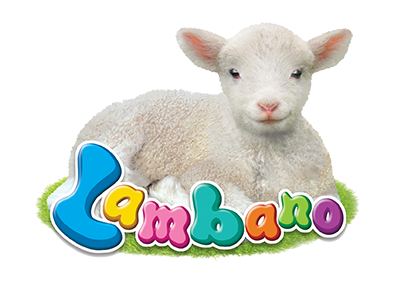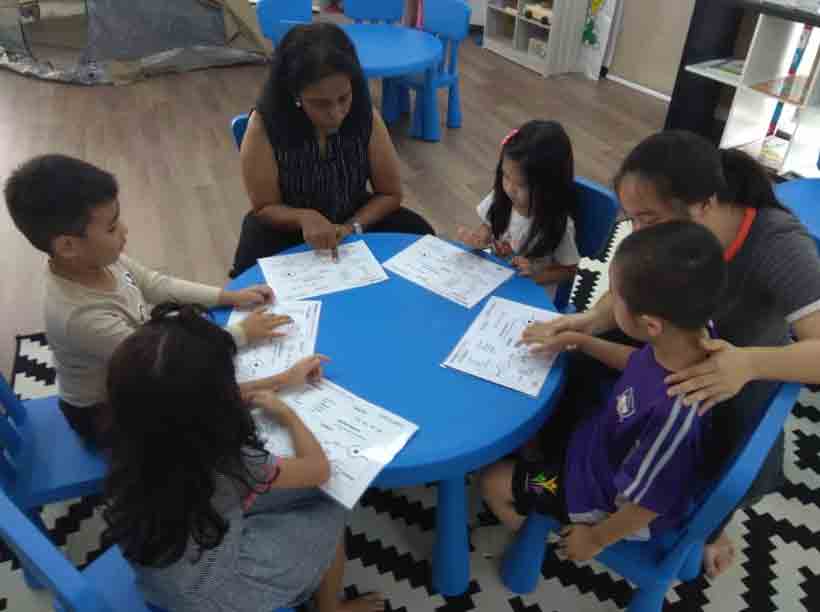The Ministry of Education has for a few years, launched an early childhood education plan to encourage more play in the school for pre-schoolers. More time should be allocated for the child to be creative and experience learning through play.
The plan has aroused interest, but concerns have also been heard. Children need more preparation to get ready for school and for the future therefore, some schools maintain more work and less play program. Play ceases and the carefree freedom of childhood disappears. Yet others are incorporating new strategies to include play whenever possible, to satisfy the MOE plan.
We have very different traditions of interpreting things. Learning and teaching are still often combined with the school. Early childhood education, knowledge, and purposeful activity have traditionally been seen to take place during periods designed by the teacher.
The importance of play in early childhood education has always been recognized, but the game can remain an activity that has a time and a place only when it suits the teacher’s daily rhythm.
We need to know what is happening in the play, it is impossible to justify the meaning of the play in terms of learning or goals. Children are active in play and are best at learning through their play. Phonics for English and word recognition are best learned through play. Imagine your children reading words as they play a game of musical chairs. Words are placed on the chairs, and when the music stops, they can only sit if and after they read the word that is placed on the chair. No elimination is necessary. Keep playing many rounds until the children are familiar with most of the words.
Learning involves emotions. Social etiquette is developed here. The quality of interaction between children and teachers are essential. Values are learned, like sharing, taking turns, giving and taking, comforting when needed and empathy. Roleplay gives the children the opportunity to imitate real situations. A doctor and patient scenario present the scene for emotions to be displayed, examples like pain in injury and doctors showing compassion. Many words can be introduced to the children to use in this role play, increasing their vocabulary.
Education should emphasize a holistic pedagogy based on children’s interests, in which play plays a central role. From the child’s perspective, every moment is an opportunity to explore, experience, wonder and learn new things. The importance of play as an intrinsic value for the child. Play is an excellent vehicle for teachers to use to teach children.
“WHEN THE PLAY TAKES OFF, WHAT HAPPENS?”
The teachers involved in the play can support their progress by introducing new elements and exciting twists to play. Play environments should be designed and modified for the children. The content of the learning areas linked to play and the achievement of goals must be systematically evaluated.
Playtime is done every day. Play as a whole group. Each child is to be seen, heard and understood as an individual. The games should practice caring for others, empathy, social skills, and conflict resolution. Enjoy together. The teachers should promote a safe, culture that encourages learning, and where children love to be.
The joy, enthusiasm, and perseverance of learning are best played in play. In a safe atmosphere, learning is a play. Every child is entitled to it.
It is especially important to communicate the goals of play activities to the caregivers as well. Play is and should be the extraordinary quality of early childhood education. Play in early childhood education or pre-school education is relevant to their child.
Then let us boldly throw ourselves into the world of children and proudly say we’ve been playing together in school today!
PLAY DOES GOOD FOR ALL.
Play is universal. There are many ways to play, alone, for two or with a group. Play can be played by people of all ages and without a common language, as the play does not know the age limit or language. Play is essential for a child’s emotional, social and cognitive development, but it is also useful for an adult.
PLAY STRENGTHENS THE CHILD AND BRINGS JOY
Play is the child’s natural way of participating and learning. You can learn and practice different skills in a game without fear of failure. A child’s enthusiasm for playfulness and learning can teach, everyday activities, information, and good manners.
In games, the child practices learning to learn and thereby reinforces his or her skills and knowledge. Cognitive functions, such as thinking, memory, and language, are trained in the game and games. Many games require experimentation, problem-solving, thinking, and understanding – the very things that are needed for learning.
In the play, the child learns the rules of life, such as social skills, interaction and listening skills. The development of social skills is an essential part of the play: learning how to communicate and negotiate, see things from the perspective of the other, and gain empathy from the other and how to get along with each other.
Emotional handling and creativity are an integral part of the play. Play can also have the power to enhance a child’s confidence and abilities.
Play gathers resources, strengthens inclusion and promotes democratic skills. For example, getting a group of children to build a tower of small rocks. Placing the rocks as a tower, and balancing the rocks, creates a shared experience and promotes unity in working together. In an English class, place many word cards in the center of a group, and the children are tasked to use all the cards to create as many sentences as possible or make a very long sentence that makes sense. The children will learn to work together, and perhaps help each other to get the task done.
PLAY HELPS THROUGH SOME DIFFICULT EXPERIENCES
Every child should have a safe place where they can build their own toys, their imagination, or play to overcome difficult experiences out of their minds. Through play, a child can express himself and his emotions. It helps him deal with difficult things, relieves feeling sick, brings joy and security.
Play can help you experiment safely with different roles and help you experience another’s the character. The best way to get to know your child is to start playing with him. Play allows you to establish a confidential relationship with your child much faster than would be the case with speaking. Perhaps tricky experiences can be shaped more easily through play.
PLAY IS ALSO GOOD FOR ADULTS TOO
“We don’t stop playing because we get older – we get older because we stop playing.”
(Herbert Spencer)
Play is of paramount importance to the child’s development, but it is also essential to an adult. Playing is not always easy for adults. For some reason, adults lose the ability to be playful and curious as they grow older. Perhaps we become afraid of failure, embarrassed, or we adhere to habits don’t like change. An adult can be a facilitator and a participator in to play because in play anything is possible, you cannot go wrong. Burn some energy and release tension in the stressful world.
HOW TO ORGANIZE YOUR PLAYING?
Playday is every day and play activities can be organized at any time. The only limit to organizing a play is your imagination.
It can be organized for an individual or for a family, a group of friends or as a hobby, in the neighborhood or a housing association.
Examples of play themes include:
– during the break, a playtime shared by the whole school
– orienteering indoors or outdoors
– a night with board games
-play various ball games
-obstacle courses
-treasure hunts
The list is endless!
Other considerations:
- Where is the play event organized?
Choose a convenient place for everyone. Is it indoors or outdoors?
- What happens?
Choose games that everyone can take part in. You can have either a whole group activity or individual type activities.
- How are participants considered?
All participants are welcome to the play. If it involves a learning game for English, have the children been taught the words prior to the game. Games should cater to all ages.
- What is the goal?
To have fun! And learn of course! Go crazy and play a learning game today!

